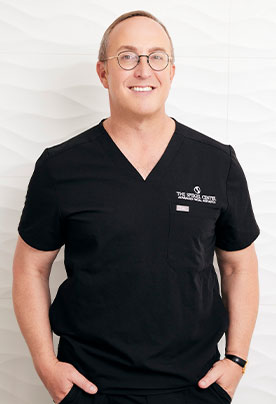
“Will insurance cover my plastic surgery?”—that’s a great question
If you’re going to invest in plastic surgery, you want to make sure you’re not paying for something your insurance covers. Plastic surgery and insurance coverage are a bit tricky—there’s always gray areas and thin lines.
Here’s everything you need to know:
Your Insurance Company and Plan Determine Coverage
Most insurance doesn’t cover any type of cosmetic surgery procedures.
Companies also make clear distinctions between plastic surgery that’s done for cosmetic purposes and plastic surgery that’s done to:
- Reconstruct parts of the face
- Preserve quality of life
- Restore normal function
Surgery done for these reasons might be covered by your insurance.
Cosmetic Surgery That Won’t Be Covered by Your Insurance
The three most common procedures that aren’t covered by insurance are:
- Liposuction
- Breast augmentation
- Eyelid surgery
These surgeries are considered “optional” and insurance companies will not cover them unless rare circumstances dictate.
Plastic Surgery That Might Be Covered
As previously eluded to, plastic surgery that’s done to preserve function and health can be covered by insurance. Your surgeon’s diagnosis will be looked at by your insurance company. Insurance companies will first determine if non-surgical measures can be taken. If they can’t, coverage might be possible.
It’s important to know that there never are guarantees. Each company has its own rules, restrictions, guidelines, etc. Never get a surgery before you know if it will be covered by insurance, as payments after surgery will be impossible.
Situations Where You Might Be Covered
Insurance companies place a lot of emphasis on the reasoning behind a procedure. Coverage is possible if you have a problem due to:
- A car accident
- A major accident
- A burn incident
- Injuries sustained during an altercation that you had no control over
Insurance companies view these situations are “non-optional” reasons to have a procedure. Your chances of being covered are high.
An Example of a Situation Where You Have a Good Chance of Being Covered
You sustained an injury to your nose. The injury causes you to not breathe properly and gets in the way of your day to day life. Your surgeon diagnoses you with a deviated septum and says that a nose job can be done to correct it.
In this (or a similar) situation, your chances of being covered are high.
Conclusion—Your Surgeon is Your Best Resource
For information regarding insurance coverage of the specific procedure you’re interested in, it’s always best to seek the advice of a board certified plastic surgeon. They can diagnose your condition and then give you the information you need in regards to coverage. Their experience is unprecedented—if you can get coverage, they will know how.





